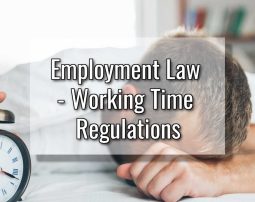The lockdown which started in March 2020, and has re-emerged in different forms thereafter, has altered the way HMRC have decided to recover money owed to them by taxpayers and businesses. Ask A Solicitor UK.
HMRC has new Debt Recovery Powers
“The government is considering how HMRC can modernise its collection of tax debts to reflect the changing nature of the economy and new business practices including those who conduct their business in the UK without having a presence or physical assets here. The call for evidence also seeks views on HMRC’s approach to the small minority of taxpayers who do not engage with HMRC and hold off paying for as long as they can, forcing HMRC to resort to costly and time-consuming enforcement action. The proposals in this call for evidence will not affect taxpayers who are in temporary financial difficulty (including those affected by the Covid-19 pandemic) and who need some support from HMRC”.
New Powers
The use of traditional debt collection powers ended last year due to Covid regulations. However, this hasn’t stopped HMRC recovering money owed to them by debtors. They have done this by deducting money directly from salaries and pension incomes via a digital procedure known as “Coding Out”. This debt recovery method has become increasingly popular with HMRC and indeed the government last year handed the agency enhanced powers to use this recovery tool against taxpayers who failed to pay what they owe.
This measure will increase the amount of debt which can be recovered. It works by forcibly changing the tax code of the debtor to dock money from wages to recover money owed. Last year HMRC changed the tax codes of 134,000 debtors and collected more than £54 million in unpaid bills. To put this into context this is an increase of £74,000 from the year before.
The tax code changes effectively mean the individual receives less in their monthly salary payment, as HMRC deduct an additional amount due to ‘coding out.’
How Much Can HMRC Take From Wages?
HMRC can take between £3,000 and £17,000 from annual earnings using its Coding Out system at any time in the financial year.
A limited £3,000 applies to those who earn up to £30,000 and increases by £2,000 for every £10,000 earned on top of that. £17,000 is the maximum limit and applies to anyone who earns more than £90,000 each year.
Tax debts have spiralled during the lockdown to more than three times higher than pre-pandemic levels. HMRC also made more than 7,000 people bankrupt between 2016 and 2020. But the agency says it uses bankruptcy only as a last resort if it felt debts were deemed irrecoverable.
Other recovery methods, such as bailiff action, were used much more frequently by HMRC up to March 2020.
Other Recovery Methods
Another recovery method by HMRC is the use of their in-house field officers. These officers present themselves at debtors’ homes and businesses requesting payments. Prior to lockdown this recovery action was used by HMRC in hundreds of thousands of cases each year.
However, this line of recovery was drastically reduced post lockdown. Last year only 3,600 people had to come face to face with HMRC as their offices used the phone much more because of Covid. Ask A Solicitor UK
Contact HMRC Before They Contact You
It is imperative that if you are struggling to make your payments to HMRC you try to avoid any enforcement action. Contact them and open lines of communication to explain your position.
Around 665,000 people who are struggling to pay their tax bills have payment plans in place with HMRC. These are known as a “Time to Pay” agreement.
If you are struggling with HMRC debts or with any other unsecured creditor then get the appropriate debt and insolvency advice. Ask A Solicitor UK
Expert Answers – Ask A Solicitor UK
If you need Financial Advice, contact one of our experts for free, initial advice. Your question will be sent to experts qualified in the relevant field who will respond as soon as possible.
All our experts’ credentials are verified by us and we are confident they have the skills required to help you. Only the most qualified experts are allowed to answer questions. Ask A Solicitor UK




